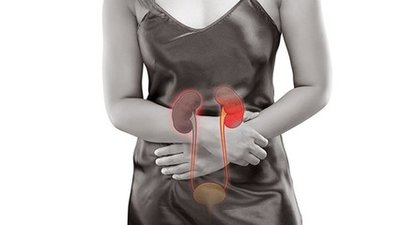Cystitis Still Not Improving After Taking Medication? What Should I Do?
Cystitis is a common urinary tract infection, accounting for about 60% or more of urinary tract infections. It usually occurs more often in women because their urethra is shorter than men's and close to the anus, which makes it easy for E. coli bacteria to invade. Especially in reproductive age, certain women can have recurrent episodes of cystitis.

Clinically, many patients cannot improve their condition through medication, and urinary discomfort such as frequent urination, urinary urgency, and painful urination persist or recur. What should these patients do?
Generally speaking, cystitis can be cured by reasonable medication. If the inflammation still exists after medication, there may be the following reasons:
I. Appropriate Use of Medication
Cystitis is usually caused by bacterial infection; patients may have frequent urination, urinary urgency, painful urination, and other symptoms; it is recommended that patients use drugs such as cefixime capsules, levofloxacin hydrochloride capsules under the guidance of the doctor for treatment. If the patient does not follow the doctor's instructions to take the drugs on time and in the right amount, it may lead to the use of the wrong medication, which will not be able to treat the disease.
In addition, different types of cystitis are treated differently, and some causes cannot be resolved by medication.
Tuberculous cystitis may require further investigation of the urine for tuberculosis DNA and antibodies to clarify the diagnosis. If it is tuberculous cystitis, anti-TB treatment is needed.
Interstitial cystitis is also ineffective with medication and needs to be treated with bladder water dilatation and intravesical injections of heparin and lidocaine.
Medication is also ineffective for patients with cystitis glandularis at some points, and surgical treatment is required to improve the patient's symptoms.
II. Combination of Other Factors
1. It is necessary to check if the patient has drug-resistant bacteria. If drug-resistant bacteria are present, sensitive antibiotics should be selected. The choice of sensitive antibiotics should be based on the urine culture results and drug sensitivity tests for anti-infection treatment to recover the inflammation.
In addition, to avoid the emergence of drug-resistant bacteria, patients can also choose the Diuretic and Anti-inflammatory Pill, which can comprehensively regulate the patient's genitourinary system, eliminate inflammation, and relieve urinary discomfort and other symptoms.
2. It is necessary to check further whether the patient has diabetes or immunocompromised status. In such a state, there is no therapeutic effect of taking medication, and it is necessary to actively control blood sugar and correct the patient's immunocompromised state so that cystitis can gradually recover.
3. Further examination is needed to see if there are predisposing factors to cystitis that have not been removed, such as the presence of stones, polyps, tumors, urinary tract obstruction, etc. In this case, the susceptibility factors need to be removed while treating cystitis, such as giving urethral dilatation, indwelling catheter or surgical removal of stones, removal of tumor tissue, etc., so that cystitis can be cured.
III. Attention of Life Conditioning
If patients ignore life during the treatment, still eat spicy and stimulating food, and do not drink enough water, it may affect the drug's effect, resulting in the condition not being recovered. It is recommended that patients pay attention to a light diet in daily life, eat more fresh fruits and vegetables, avoid eating spicy and stimulating food, and drink more water to promote the body's metabolism.
IV. Pay Attention to Local Hygiene
If patients ignore local hygiene during treatment, it may lead to bacterial growth, thus causing the above symptoms. Patients are advised to pay attention to local hygiene in daily life, change and wash underwear frequently, and clean the urethra every day.
Therefore, after taking medication and the cystitis still has not improved, it is recommended that the patient go to the hospital in time to clarify the cause of the disease and the combination of other disease factors to take symptomatic treatment. In addition, patients should also follow the doctor's instructions to take medication, not stop taking medication without authorization and abuse medication, and maintain good living habits.
You may also be interested in:
Why Does Cystitis "Target" You? See If You Meet These 4 Points
Is Cystitis Prone to Recurrence? How to Reduce the Frequency of Episodes?



